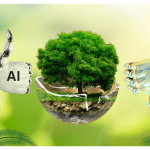The Role Of Green FinTech In Scaling Climate Adaptation
This report explores how Green FinTech is helping Kenya adapt to climate change through tools like parametric insurance, carbon wallets, and green bonds. Highlighting innovations by firms such as Pula, M-Kopa, and Equity Bank, it shows how digital finance is driving climate resilience and sustainable development.







